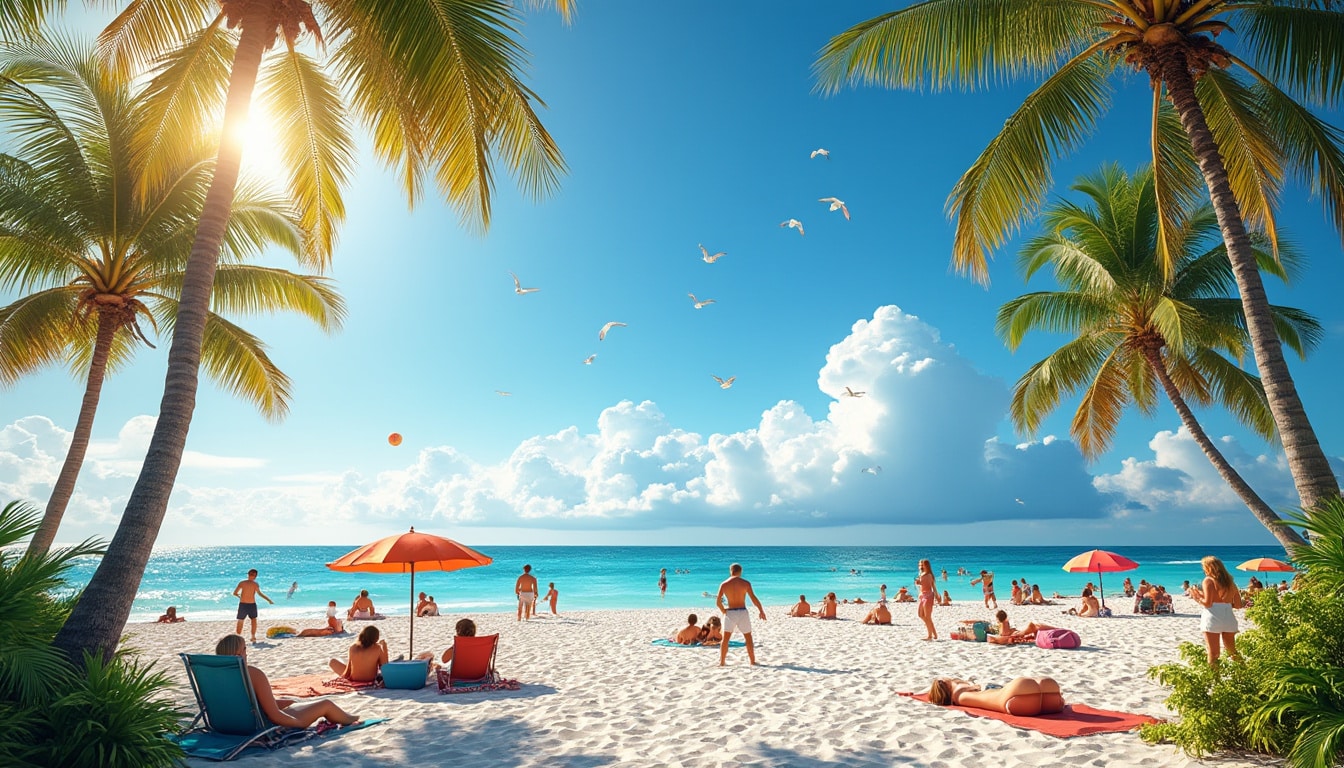Fort Lauderdale, a gem on Florida’s eastern coastline, boasts a tropical rainforest climate where the sun shines brightly nearly all year round. A favored destination for beach lovers and sun-seekers, this city offers a unique weather experience that enchants visitors and residents alike. This comprehensive guide delves into the month-by-month climate nuances in Fort Lauderdale, providing a thorough understanding of its weather patterns, precipitation levels, and sunshine hours.
Fort Lauderdale Weather by Month: Climate Averages
Situated in the Sunshine State, Fort Lauderdale enjoys a steady tropical climate. Throughout the year, temperatures remain warm, but there are distinct patterns that shape its monthly climate. January in Fort Lauderdale is comfortably mild, with average high temperatures around 75°F (24°C) and lows hovering near 57°F (14°C). This month typically witnesses lower precipitation volumes, averaging about 2.62 inches. As March approaches, temperatures begin to climb gradually, reaching average highs of 82°F (28°C).
Spring, in particular, provides a delightful climate that draws numerous tourists. April greets visitors with average temperatures ranging between 66°F (19°C) and 85°F (29°C), making it an ideal time for outdoor activities. However, it’s crucial to note that April’s rainfall begins to increase, setting the stage for the wet season. Come May, precipitation levels surge dramatically, with averages reaching 6.2 inches, signaling the onset of the rainy season.
- 🌞 January – High: 75°F / Low: 57°F
- 🌞 March – High: 82°F / Low: 66°F
- 💧 May – High: 85°F / Low: 74°F – Precipitation: 6.2 inches
June, July, and August mark the core summer months in Fort Lauderdale, with average highs peaking around 90°F (32°C). These months also see the maximum rainfall, particularly in June, where precipitation averages nearly 9.81 inches. It is during this time that thunderstorms become more frequent.
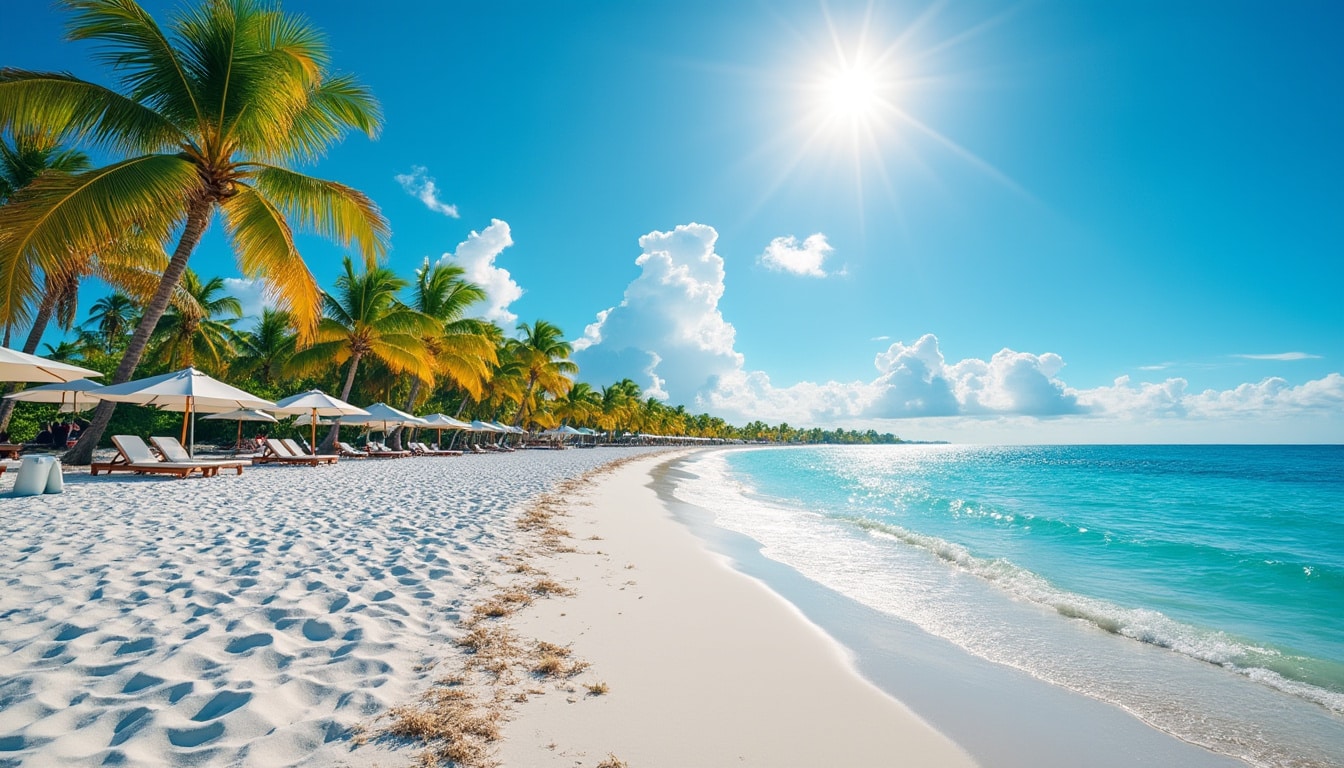
The Wet and Dry Seasons in Fort Lauderdale
Fort Lauderdale exhibits a distinct separation between its wet and dry seasons, a common characteristic of tropical climates. The wet season generally kicks off in late May and can persist until October, characterized by high humidity and frequent afternoon storms. Such conditions are typical for a city positioned in the hurricane-prone Atlantic coastline.
The wet season offers its own charm, painting a vivid picture of lush greenery, vibrant sunsets, and refreshing ocean breezes. Despite the occasional rain showers, many locals embrace this season, taking advantage of reduced tourist crowds and enjoying nature’s dramatic displays. Visitors planning a trip during these months should keep an eye on reliable sources like Weather Channel, AccuWeather, and NOAA for daily updates.
The dry season, from November through April, showcases Fort Lauderdale’s best, with less humidity, clear skies, and pleasant weather. These conditions make it prime time for tourists seeking sun-drenched beach days and city explorations. With average rainfall dropping to as low as 2.39 inches in November, the dry season is considered Fort Lauderdale’s peak tourist period.
| Month | Precipitation (inches) | Humidity (%) |
|---|---|---|
| July | 7.4 | 73% |
| August | 8.0 | 74% |
| November | 3.9 | 71% |
Wind and Ocean Conditions: What to Expect
Wind patterns in Fort Lauderdale can greatly influence the overall experience of visitors, especially those with a knack for water sports. The windiest month is typically April, with average speeds of around 18 mph, ideal for enthusiasts of kite surfing and sailing. Meanwhile, the prevailing easterly trade winds keep the maritime influence in check throughout the year, moderating the heat.
Weather Underground and Dark Sky provide excellent real-time information, essential for planning any beach-side activities. Besides, the water temperature remains conducive for swimming year-round. In winter months like January, sea temperatures average around 74°F (23°C), while in peak summer months like August, they can rise to an inviting 86°F (30°C).
It’s significant to note the impact of seasonal changes on ocean conditions. During the wet season, the ocean swells can be a bit more pronounced, offering surfers the right thrill in the early mornings and late afternoons. The dry season, conversely, allows for more serene and calm waters, perfect for swimming and snorkeling.
- 🏄♂️ April: Windiest month for water sports – 18 mph winds
- 🌊 January: Sea temperature – 74°F
- 🐳 August: Sea temperature – 86°F
Sailing through the Seasons: Enjoying Fort Lauderdale
With its captivating climate, Fort Lauderdale is a year-round destination for leisure and adventure. The city’s weather not only caters to beach-goers but also enhances the charm of local festivals and outdoor events. Seasonal events like the Fort Lauderdale International Boat Show, typically held in autumn, exploit the city’s temperate climate conditions. These events are a significant attraction, enticing both locals and international visitors.
Patrons and aficionados of maritime activities regularly consult Climacell, Wunderground, and WeatherBug to synchronize their plans with the ideal weather conditions. The accessibility of technology aids in selecting the optimal times for hosting outdoor events, planning vacations, and exploring nature.
September and October can serve up a bit of a weather dichotomy, as hurricane season peaks. During this period, proactive weather forecasts from The Weather Network and Snap Weather become vital tools for both safety and planning. Despite this, the promise of spectacular views, captivating ocean waves, and warm hospitality remain steadfast, ensuring memorable experiences throughout.
Travel Tips for Experiencing Fort Lauderdale’s Climate
Visitors to Fort Lauderdale can maximize their experience by aligning plans with its climatic rhythms. For instance, early bookings during the dry season assure access to exclusive events and accommodations in high demand. Additionally, packing essentials like sunscreen, hats, and light clothing can enhance comfort, especially during the hot summer months.
For those seeking adventures and encounters with nature, the shoulder seasons—spring and fall—offer amazing opportunities with the added benefit of reduced tourist density. Always stay updated with live updates and weather predictions from reliable apps and websites to ensure a safe and enjoyable stay.
| Season | Best Activities | Temperature Range (°F) |
|---|---|---|
| Winter | Beach lounging, Sightseeing | 57°F – 75°F |
| Summer | Surfing, Festivals | 76°F – 90°F |
| Spring/Fall | Outdoor events, Hiking | 66°F – 85°F |
To further enhance the experience, travelers can explore local resources such as Fort Lauderdale Sunset for up-to-date event listings and sightseeing suggestions. Planning your visit around these local insights ensures a rich and fulfilling experience that captures the essence of Fort Lauderdale’s vibrant and dynamic climate.
FAQ
- Q: What is the best time to visit Fort Lauderdale?
A: The dry season from November to April offers the best weather for visiting. - Q: Are hurricanes common in Fort Lauderdale?
A: While hurricanes can occur during the wet season (June to November), they are closely monitored. - Q: What should I pack for a trip to Fort Lauderdale?
A: Light clothing, sunscreen, and a hat are essentials for enjoying the sunny climate.
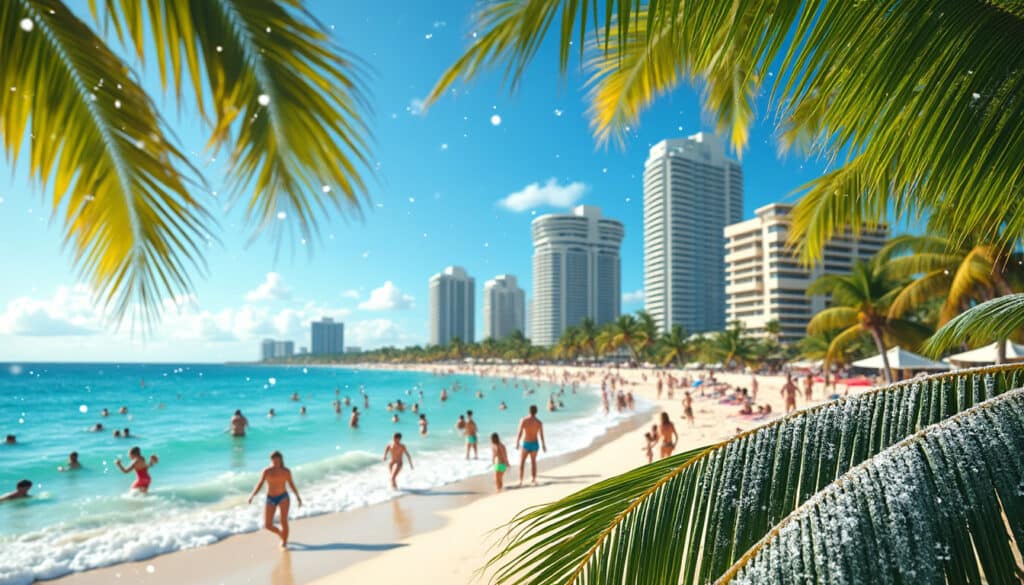
Does it snow in Fort Lauderdale?
Fort Lauderdale, known for its beautiful beaches and sun-soaked landscapes, might not be the first place people associate with snow. With weather patterns changing globally, it’s natural to wonder whether temperatures in this tropical paradise ever drop low enough for…

Flooding and natural risks in Fort Lauderdale
Renowned for its sandy beaches and warm, sunny days, Fort Lauderdale is a city that seamlessly blends leisure with nature’s maritime beauty. However, hidden beneath the sun-dappled waves lies a chronic issue that requires meticulous attention: flooding. Due to its…
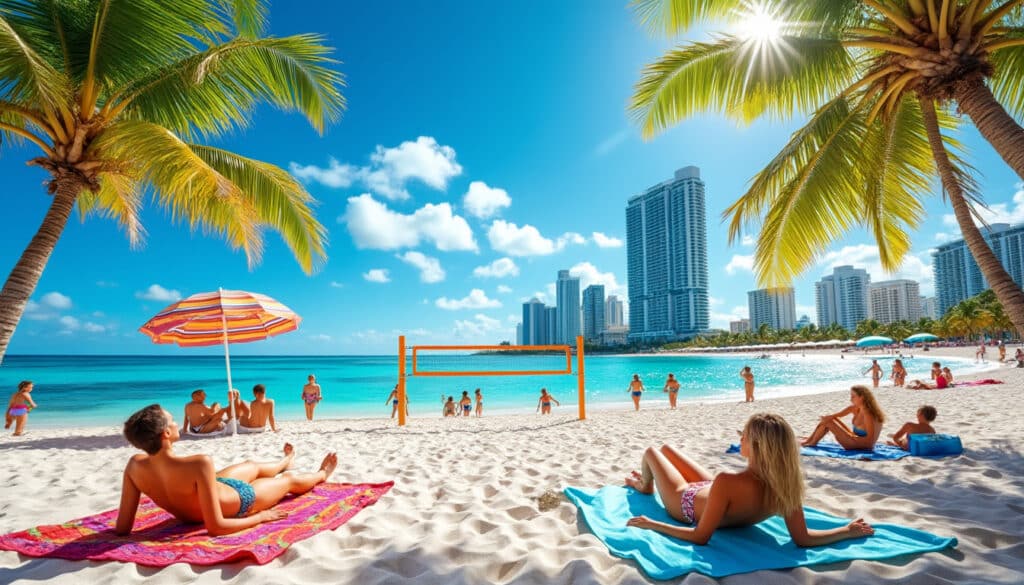
Hot weather in Fort Lauderdale
Fort Lauderdale, with its stunning beaches and vibrant nightlife, is a popular destination for sun-seekers from around the globe. From the bustling Las Olas Boulevard to the tranquil expanses of the Hugh Taylor Birch State Park, there’s plenty to explore…
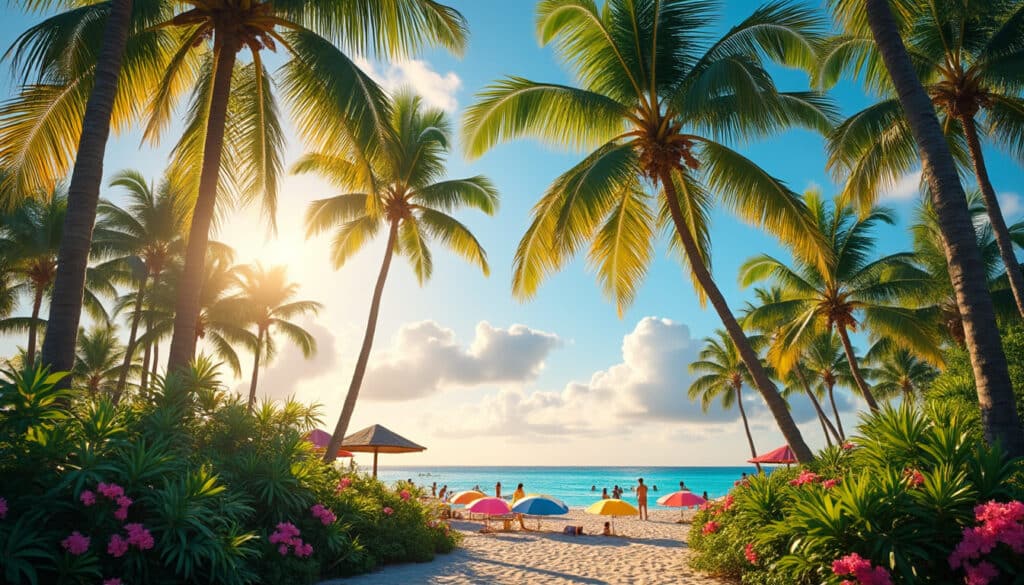
Fort Lauderdale, often celebrated for its stunning beaches and vibrant nightlife, is also known for its distinctive weather patterns, particularly its humidity. As a coastal city, the feeling of humidity plays an essential role in the everyday life of its…
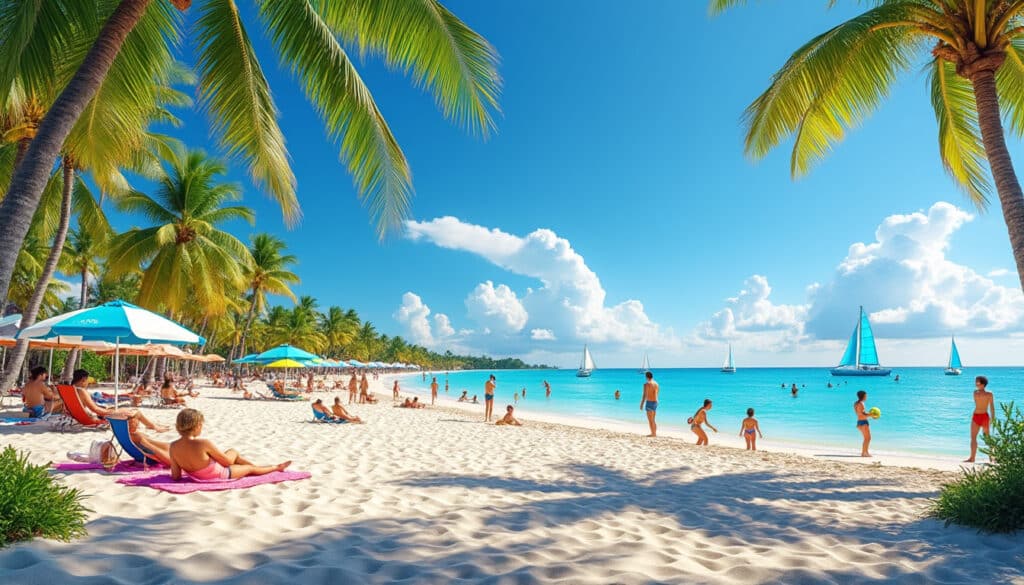
Is Fort Lauderdale warm throughout the year?
Whether basking under the glorious Florida sun or enjoying the gentle ocean breeze, Fort Lauderdale promises a near-constant state of warmth and vacation vibes. This ever-inviting destination, known for its sandy shores and vibrant city life, is more than just…
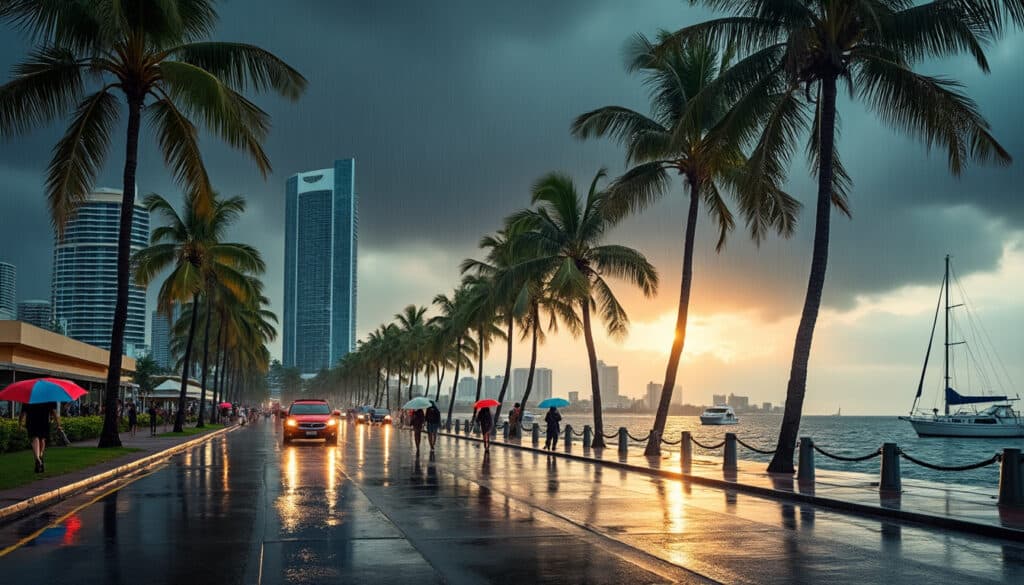
Rain and precipitation in Fort Lauderdale
Exploring the varied and tropical climate of Fort Lauderdale, one might be drawn to its sunshine-drenched beaches and coastal charm. However, rain and precipitation also play a significant role in shaping this vibrant Floridian city’s weather patterns. With a diverse…

Fort Lauderdale is a dream destination where sun, sea, and sand meet vibrant culture and thrilling entertainment. Known for its stunning coastline, this Floridian gem offers endless opportunities for fun and relaxation. But when is the best time to pack…

Sunrise times in Fort Lauderdale
Fort Lauderdale, a coastal gem in Florida, is renowned for its extensive network of sunny beaches and vibrant city life. Among the many draws to this city is the mesmerizing experience of watching the sun rise over the Atlantic Ocean.…
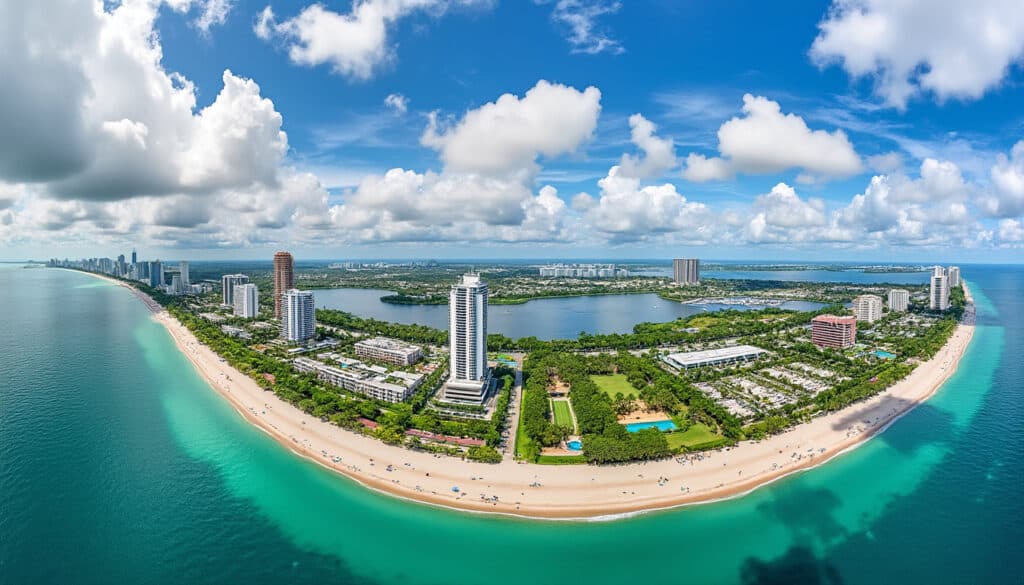
Weather in Fort Lauderdale by month
When planning a trip to Fort Lauderdale, understanding the weather is crucial to ensure that one’s visit is perfectly timed with favorable climate conditions. This vibrant city, nestled along Florida’s southeastern coast, boasts of a typical tropical monsoon climate. Known…
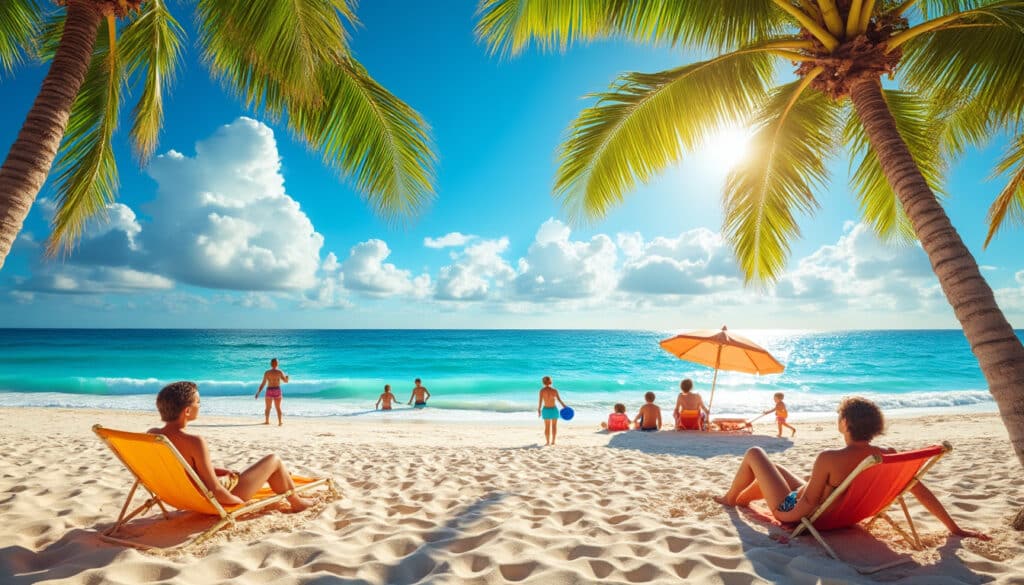
What is the weather like in Fort Lauderdale?
Located on the southeastern coast of Florida, Fort Lauderdale is a region known for its stunning beaches, canals, and vibrant lifestyle. One of its defining characteristics is its weather—a tropical climate that draws tourists and sun-seekers all year round. As…

Cold weather in Fort Lauderdale
Fort Lauderdale is often associated with warm, sunny weather and beautiful beaches. However, every now and then, Floridians get to experience a surprising twist: a cold spell. When cold fronts move across Fort Lauderdale, temperatures can dip unexpectedly, making residents…

